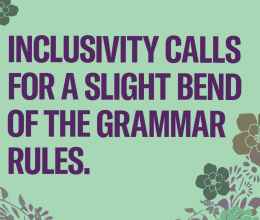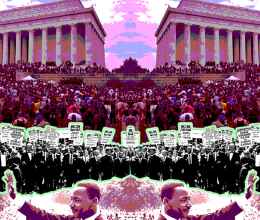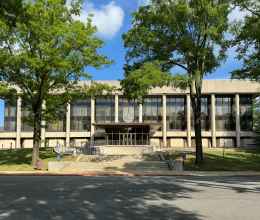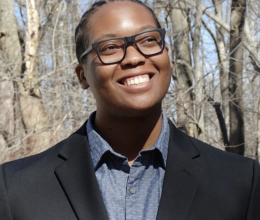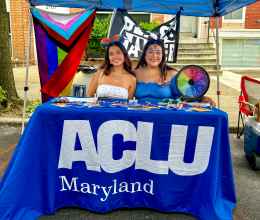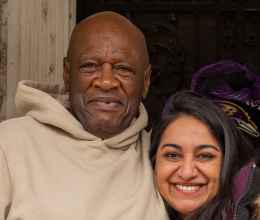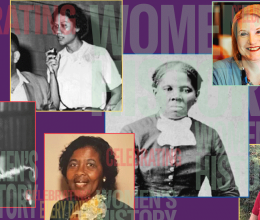
This Women's History Month, we remember that it was a woman who founded the ACLU of Maryland: Elisabeth Gilman, daughter of the first president of Johns Hopkins University. In 1921 she formed The Maryland Civil Liberties Committee.
In 1931 she was horrified by the lynchings on Maryland's Eastern Shore, Gilman and friends transformed the Committee into the official Maryland affiliate of the ACLU. The ACLU of Maryland's first case was on behalf of a Black man named Orphan Jones who was charged with murder, denied counsel, and threatened with lynching. The ACLU helped secure for Jones a change of venue, which provided at least some measure of due process.
Some 50 years later in 1986 another woman, Susan Goering, came to the ACLU of Maryland. After 10 years as legal director, she became the longest serving executive director in the affiliate's history - retiring this year, in 2018. Goering and then-board president Christopher Brown were determined to bend the arc of the organization's history back toward the civil rights focus of the early leaders.
They envisioned a Maryland in which all children regardless of background had fair access to quality education. A Maryland in which Black families weren't denied the opportunity to live in neighborhoods with good schools, safe streets, and better job prospects. And a Maryland in which people were not stopped by police based on the color of their skin.
Goering, the ACLU's team of lawyers and strategists, and many Marylanders impacted by these injustices worked together to make these visions into reality. Long before "institutional racism" became a common term, the ACLU mounted massive, decades-long class action lawsuits to dismantle the deeply entrenched, racist Jim Crow policies that blighted Maryland.
And they won. The 1990s were seminal years for the ACLU. Three lawsuits and three victories that transformed the landscape of civil rights in Maryland.
The education reform lawsuit, Bradford v Maryland, propelled the passage of the historic Bridge to Excellence in Education Act, the "Thornton" formula. Statewide education funding increased. And the equity of that funding increased, too, which dramatically improved education opportunities, especially for children of color, as well as English as a second language students, and special needs students.
Next came the landmark lawsuit Thompson v HUD, which sought to topple the century-long legacy of government-sponsored racial segregation of Baltimore's public housing. As a result of the lawsuit, nearly 4,000 Black families have been able to seize the chance to move to opportunity-rich neighborhoods where they have better access to employment, transportation, and education.
Finally, in 1995, the ACLU filed one of the nation's first successful "Driving While Black" lawsuits on behalf of an innocent Black man driving with his family.
In recent years, the ACLU of Maryland has once again been undergoing a historic shift, a next phase of our civil rights focus: centering race equity internally and externally. The goal is to better support and be accountable to communities of color, whose civil rights AND civil liberties are systematically threatened by white supremacy.
Today, while the work begun by Elisabeth Gilman and carried forward by Susan Goering and team is by no means finished, we are proud of the great progress made. And we are ready for the work ahead, too.
Whether defending immigrants and refugees targeted by Trump; fighting for racial equity, LGBT people, gender equality ; or defending the fundamental right to vote, we are determined to center equity and challenge injustice. That's what the ACLU of Maryland is all about.
